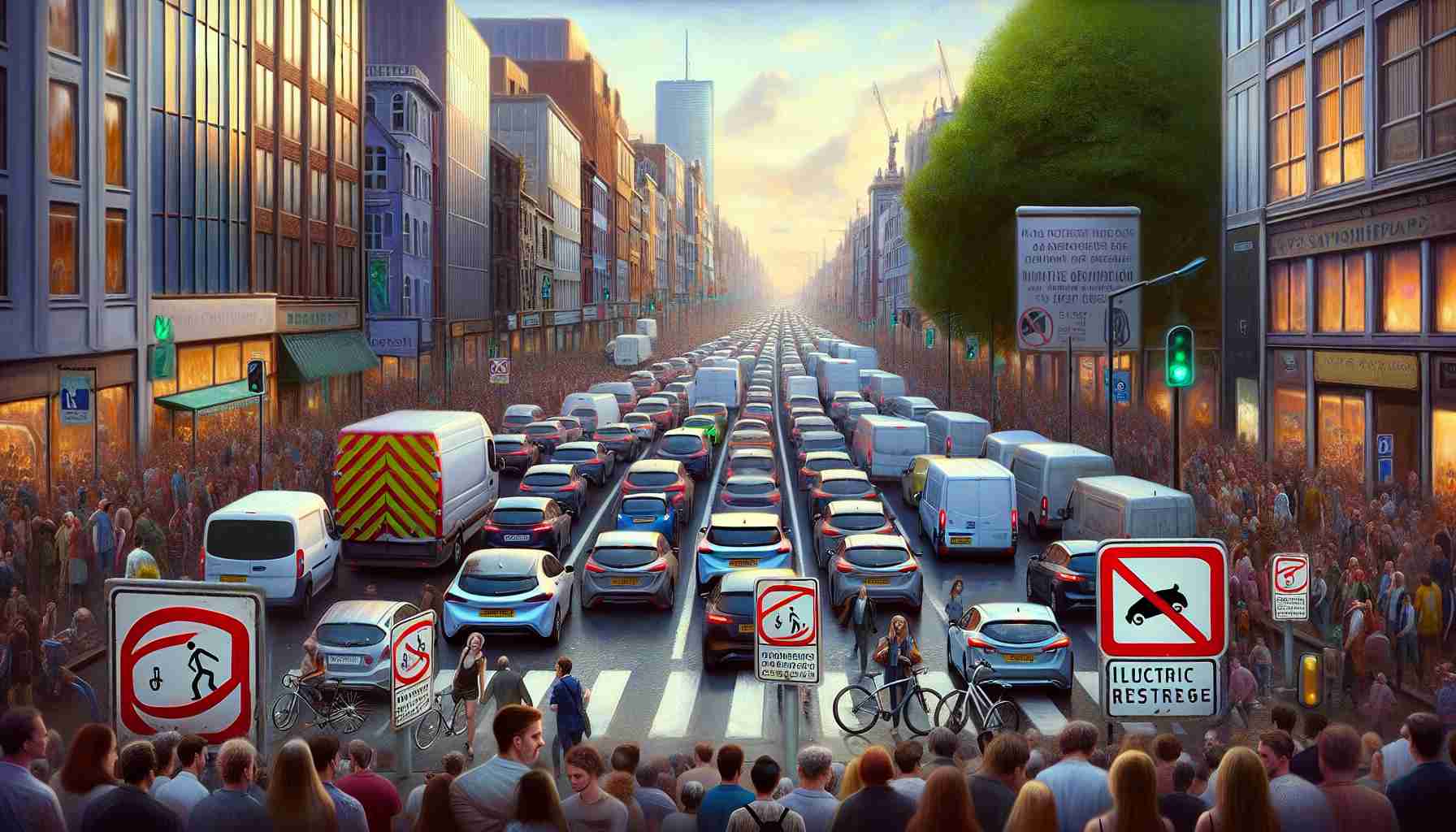The Metropolitan Manila Development Authority (MMDA) has recently announced its plan to implement a road restriction on various electric vehicles starting April 15. This move has sparked controversy and dissatisfaction among active transport advocates, who argue that the restrictions fail to consider the needs of commuters and motorists who rely on light electric vehicles to navigate the traffic in Metro Manila.
According to the MMDA’s Memorandum Circular, e-bicycles, e-tricycles, electric kickscooters, electric scooters, electric unicycles, tricycles, pushcarts, pedicabs, and kuligligs will be restricted on national roads in designated areas. However, the MMDA emphasizes that these vehicles can still travel on major roads as long as they stay within established bike lanes. This exception has drawn criticism from advocates who believe that the limited and intermittent nature of bike lanes in Metro Manila puts electric vehicle users at risk of violating the restrictions unintentionally.
Robert Siy Jr., co-convenor of Move As One Coalition, expresses concerns about the abrupt endings of bike lanes, which could lead to encounters with MMDA enforcers. He suggests that instead of focusing on restrictions, the government should prioritize the development of a comprehensive network of bike lanes to ensure the safety and convenience of electric vehicle users.
Ira Cruz of AltMobilityPH echoes these sentiments, stating that the MMDA’s restriction fails to address the fundamental needs of ordinary Filipinos for mobility. He argues that the popularity of e-trikes is a result of the government’s inadequacy in providing viable transportation solutions.
To compound the transportation challenges faced by Metro Manila residents, the impending road restriction comes after the recent closure of the Philippine National Railways and the potential loss of critical jeepney routes due to franchise consolidation.
As the controversy continues, it is clear that the MMDA’s road restriction has left many dissatisfied. The concerns raised by active transport advocates highlight the need for comprehensive and thoughtful planning when implementing policies that affect commuters and motorists in Metro Manila.
The road restriction on various electric vehicles implemented by the Metropolitan Manila Development Authority (MMDA) has created a stir among active transport advocates in Metro Manila. While the MMDA’s Memorandum Circular restricts e-bicycles, e-tricycles, electric kickscooters, electric scooters, electric unicycles, tricycles, pushcarts, pedicabs, and kuligligs on national roads in designated areas, these vehicles are still allowed to travel on major roads within established bike lanes.
However, critics argue that the limited and intermittent nature of bike lanes in Metro Manila puts electric vehicle users at risk of unintentionally violating the restrictions. Robert Siy Jr. of Move As One Coalition points out the abrupt endings of bike lanes, which could lead to encounters with MMDA enforcers. Siy advocates for the development of a comprehensive network of bike lanes, instead of focusing solely on restrictions, to ensure the safety and convenience of electric vehicle users.
Ira Cruz of AltMobilityPH shares these concerns and believes that the MMDA’s restriction fails to address the fundamental needs of ordinary Filipinos for mobility. Cruz argues that the rise in popularity of e-trikes has been driven by the government’s failure to provide viable transportation solutions.
The road restriction issue comes at a time when Metro Manila residents are already facing transportation challenges. The recent closure of the Philippine National Railways and the potential loss of critical jeepney routes due to franchise consolidation further exacerbate the situation.
The dissatisfaction expressed by active transport advocates highlights the importance of comprehensive planning when implementing policies that affect commuters and motorists in Metro Manila. The concerns raised about the limitations of bike lanes and the government’s approach to transportation suggest a need for a more holistic and inclusive strategy.
For more information on the transportation situation in Metro Manila, you may visit the MMDA website or check out news sources like Rappler and ABS-CBN News.







